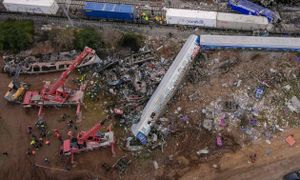The German government is making strides toward modernizing its infrastructure and services through pilot projects aimed at improving efficiency and transparency. Two significant initiatives, one within the Bundeswehr and another focusing on urban development, showcase the country’s commitment to innovation.
First on the list is the Bundeswehr’s launch of the Automated Time Recording system, or AutoZE. This initiative aims to streamline the recording of working hours for all personnel under the Ministry of Defence. Starting at 24 selected locations, the pilot program kicked off on February 4, 2025, after the formal signing of the agreement by key military officials. Notably, it marks the first time the Bundeswehr has deployed such a centralized system for time tracking.
“The introduction of AutoZE is an important step toward ensuring modern and transparent working time recording without compromising employee rights,” said Chief Petty Officer Holger Weihe, who is part of the committee overseeing working hours. The system, managed by BWI GmbH, operates through software provided by Primion, facilitating time tracking via either on-site terminals or web interfaces, ensuring user-friendly access for the personnel.
This new system prioritizes the protection of personal rights. The agreement regulating AutoZE stipulates strict data access controls and clearly states, “No personal performance monitoring – The system is not used for surveillance or performance assessment.” It emphasizes compliance with data protection regulations, ensuring collected data is used solely for defined purposes and deleted on schedule.
The pilot phase is set to last until the end of 2025, after which the Bundeswehr will analyze its feasibility for wider deployment. If successful, AutoZE could see implementation across all Bundeswehr service branches, enhancing transparency and flexibility for its operatives.
Meanwhile, on the urban development front, the city of Potsdam has made significant advancements through the launch of its Urban Data Platform (UDP), as part of the Smart City initiative. The UDP aims to create a technological infrastructure for managing and analyzing data from various urban sectors, including mobility, water, and climate. This initiative is part of the federal program supporting smart urban networks and data platforms, with continuous development expected until 2026.
Potsdam's Mayor Mike Schubert expressed pride, stating, “The launch of the Urban Data Platform is an important step toward our city of the future!” This platform is intended to provide residents with easy access to important data, such as real-time charging station availability and water levels of nearby rivers. The project promotes transparency and encourages community engagement by allowing citizens to contribute ideas for platform improvements.
The discussion around the platform also anticipates the integration of the LoRaWAN network, which will facilitate the use of sensors by interested individuals to monitor environmental parameters and improve urban living conditions.
“Our Urban Data Platform will create digital infrastructure, intelligently connecting data and making it accessible for everyone,” stated Monty Balisch, managing director of the Potsdam utilities company. The initiative is positioned to support enhanced decision-making to contribute positively to urban life.
Both the AutoZE pilot project and the Urban Data Platform reflect Germany's broader trend toward digital transformation, matching aspirations to not only modernize public services but also to connect and engage with citizens more effectively. The future of these projects will depend significantly on the outcomes of their respective pilot phases and the feedback they receive from users.
With these forward-thinking initiatives, Germany’s public sectors are taking important steps toward improving operational efficiency and enhancing urban life, setting the stage for subsequent innovations to follow.



